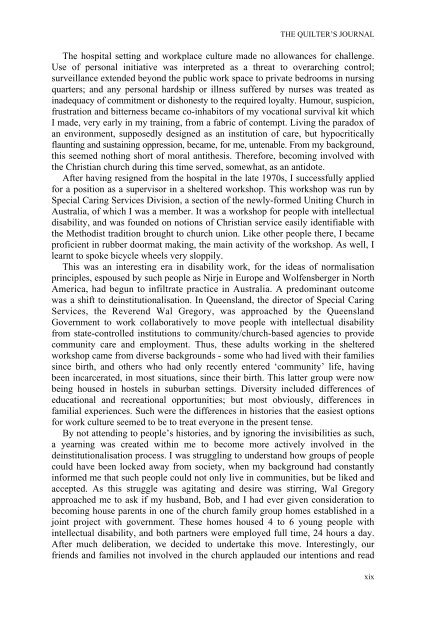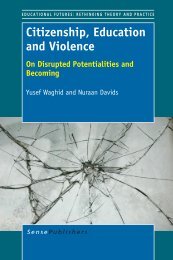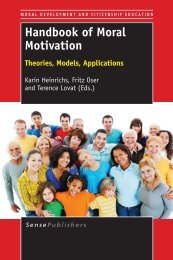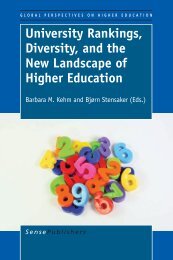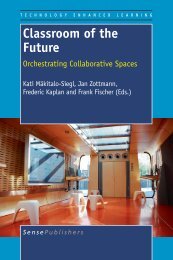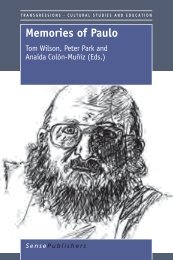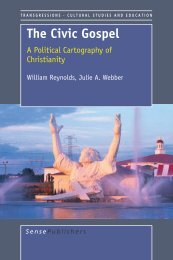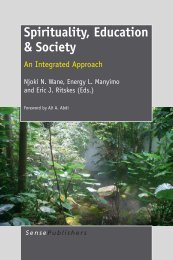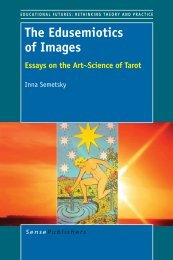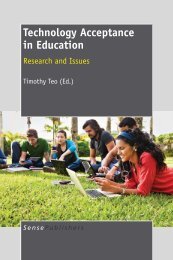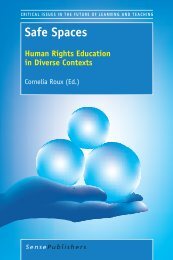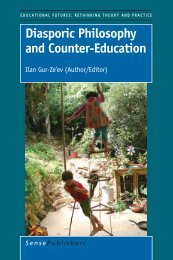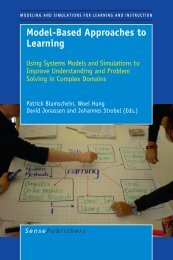Rupturing Concepts of Disability and Inclusion
Rupturing Concepts of Disability and Inclusion
Rupturing Concepts of Disability and Inclusion
You also want an ePaper? Increase the reach of your titles
YUMPU automatically turns print PDFs into web optimized ePapers that Google loves.
THE QUILTER’S JOURNAL<br />
The hospital setting <strong>and</strong> workplace culture made no allowances for challenge.<br />
Use <strong>of</strong> personal initiative was interpreted as a threat to overarching control;<br />
surveillance extended beyond the public work space to private bedrooms in nursing<br />
quarters; <strong>and</strong> any personal hardship or illness suffered by nurses was treated as<br />
inadequacy <strong>of</strong> commitment or dishonesty to the required loyalty. Humour, suspicion,<br />
frustration <strong>and</strong> bitterness became co-inhabitors <strong>of</strong> my vocational survival kit which<br />
I made, very early in my training, from a fabric <strong>of</strong> contempt. Living the paradox <strong>of</strong><br />
an environment, supposedly designed as an institution <strong>of</strong> care, but hypocritically<br />
flaunting <strong>and</strong> sustaining oppression, became, for me, untenable. From my background,<br />
this seemed nothing short <strong>of</strong> moral antithesis. Therefore, becoming involved with<br />
the Christian church during this time served, somewhat, as an antidote.<br />
After having resigned from the hospital in the late 1970s, I successfully applied<br />
for a position as a supervisor in a sheltered workshop. This workshop was run by<br />
Special Caring Services Division, a section <strong>of</strong> the newly-formed Uniting Church in<br />
Australia, <strong>of</strong> which I was a member. It was a workshop for people with intellectual<br />
disability, <strong>and</strong> was founded on notions <strong>of</strong> Christian service easily identifiable with<br />
the Methodist tradition brought to church union. Like other people there, I became<br />
pr<strong>of</strong>icient in rubber doormat making, the main activity <strong>of</strong> the workshop. As well, I<br />
learnt to spoke bicycle wheels very sloppily.<br />
This was an interesting era in disability work, for the ideas <strong>of</strong> normalisation<br />
principles, espoused by such people as Nirje in Europe <strong>and</strong> Wolfensberger in North<br />
America, had begun to infiltrate practice in Australia. A predominant outcome<br />
was a shift to deinstitutionalisation. In Queensl<strong>and</strong>, the director <strong>of</strong> Special Caring<br />
Services, the Reverend Wal Gregory, was approached by the Queensl<strong>and</strong><br />
Government to work collaboratively to move people with intellectual disability<br />
from state-controlled institutions to community/church-based agencies to provide<br />
community care <strong>and</strong> employment. Thus, these adults working in the sheltered<br />
workshop came from diverse backgrounds - some who had lived with their families<br />
since birth, <strong>and</strong> others who had only recently entered ‘community’ life, having<br />
been incarcerated, in most situations, since their birth. This latter group were now<br />
being housed in hostels in suburban settings. Diversity included differences <strong>of</strong><br />
educational <strong>and</strong> recreational opportunities; but most obviously, differences in<br />
familial experiences. Such were the differences in histories that the easiest options<br />
for work culture seemed to be to treat everyone in the present tense.<br />
By not attending to people’s histories, <strong>and</strong> by ignoring the invisibilities as such,<br />
a yearning was created within me to become more actively involved in the<br />
deinstitutionalisation process. I was struggling to underst<strong>and</strong> how groups <strong>of</strong> people<br />
could have been locked away from society, when my background had constantly<br />
informed me that such people could not only live in communities, but be liked <strong>and</strong><br />
accepted. As this struggle was agitating <strong>and</strong> desire was stirring, Wal Gregory<br />
approached me to ask if my husb<strong>and</strong>, Bob, <strong>and</strong> I had ever given consideration to<br />
becoming house parents in one <strong>of</strong> the church family group homes established in a<br />
joint project with government. These homes housed 4 to 6 young people with<br />
intellectual disability, <strong>and</strong> both partners were employed full time, 24 hours a day.<br />
After much deliberation, we decided to undertake this move. Interestingly, our<br />
friends <strong>and</strong> families not involved in the church applauded our intentions <strong>and</strong> read<br />
xix


